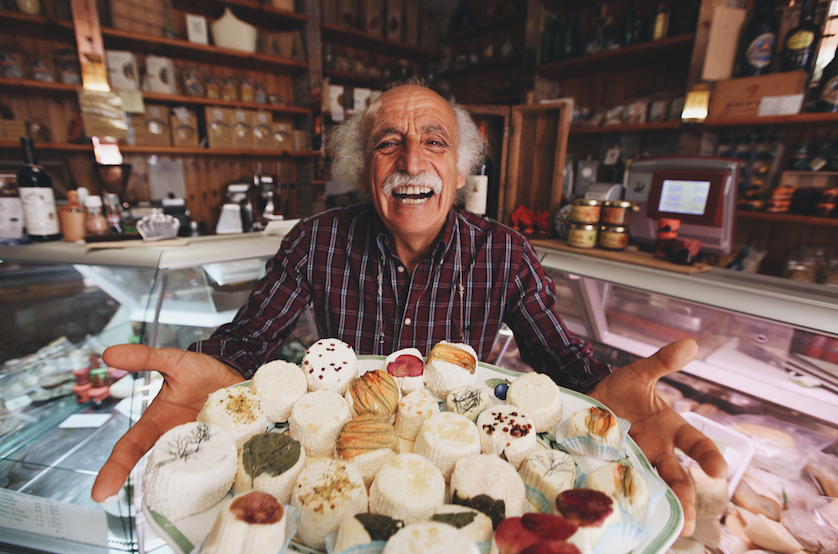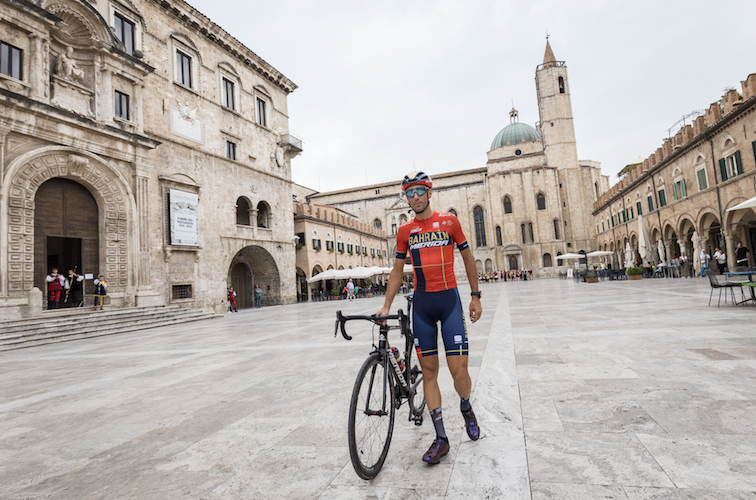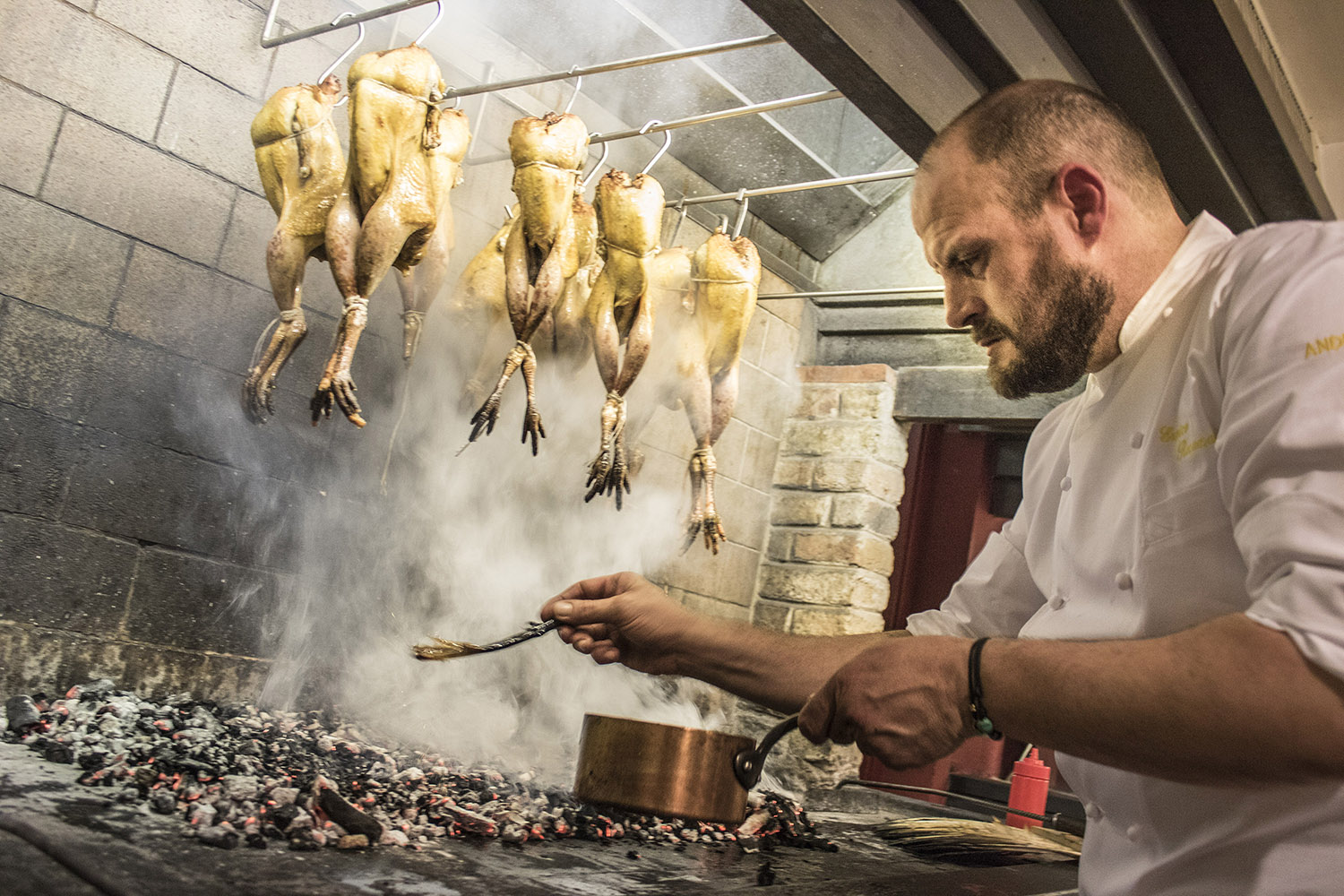Neri Marcorè’s way of belonging to Marche
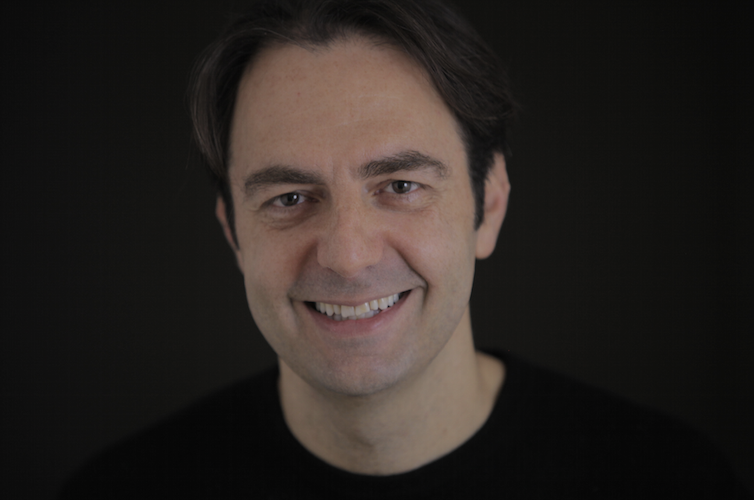
Those who remember he was shy but rich with energy and with an extraordinary ability to stay on stage since his first appearance in “Stasera mi butto” (“Tonight I’ll give it a try”, a TV program for debs), know that a bet on Neri Marcorè could only be won and the gamble would not produce much profit, not more than betting on the fact that the sun rises every morning. There are people with an appeal on audiences, and the actor from Porto Sant’Elpidio is one of them because of his simple, gentle and lovely nature and of his anti prima-donna behaviour. Though he is one of the most important stars in the Italian movie industry, he always behaves with the discreet strength of one who can afford speaking quietly because, when he does, audiences get silent to listen to him. Engaged to perform important roles both in TV and in movies, after beginning as an impersonator, Neri Marcorè is one of the nicest and most positive representatives of Marche, so much so that he was chosen to replace Dustin Hoffman as a testimonial by the regional administration.
One of the most loved celebrities, born as a comedian and by now a talented and famous actor, Neri Marcorè is not just a testimonial: he is by now a symbol of our region.
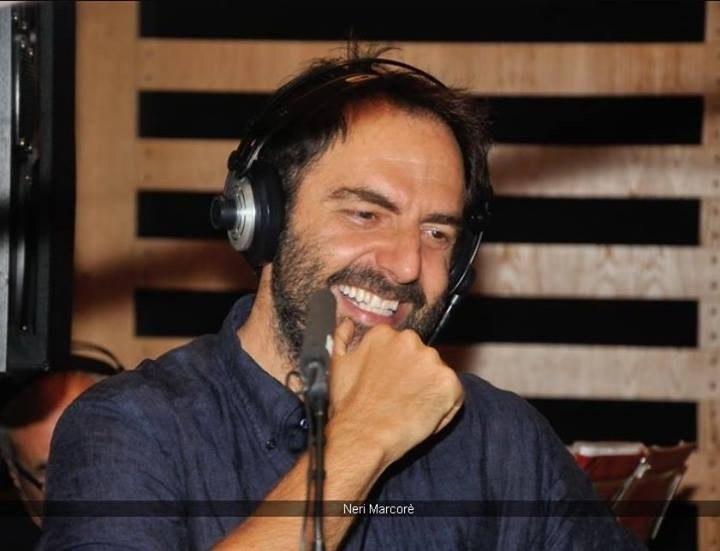
Neri Marcorè and Marche. What would you say about this combination?
I was born and fed in Porto Sant’Elpidio, and my whole family is rooted in Marche: my maternal grandparents were from Macerata and Recanati and moved to Molise, where my mother was born, but came back some years later; my father and his parents were from Capodarco di Fermo. I was an only child but had plenty of friends around me, the farmland behind, the sea nearby and all my grandparents within a stone’s throw. I can say that my childhood and boyhood were calm and exciting, protected and yet free. I keep wonderful memories of those times.
The idea of growing up in the province is anything but tempting to many. What is your opinion about that?
Though growing in a small province location may be unappealing to some, I believe that it offers plenty of advantages. Everything there is people-oriented. There is a deeper contact with nature and solidarity between people and neighbouring families, which to me are more important than the possible disadvantages caused by a constant reciprocal visibility. In our childhood we enjoyed a sort of a social, further to familiar, protecting net and had plenty of examples, both positive and negative, and guiding people (adults, seniors) to refer to. Values one can receive in his childhood in such a society, based on family and reciprocal solidarity as well as on games and exploration of what surrounds him, are critical when he has got to face the wide world. Of course there is not a general rule, but as far as I am concerned, I got to maturity equipped with a well developed set of values which helped me decode the external world, its more complex people and systems. Although the times when I grew up were different from now, Marche keep being a peculiar oasis: we have got a low crime rate, there is a very high degree of civil cohabitation and an acceptable and rather diffused level of wealth. Furthermore, in the Eighties and the Nineties of last century our land was really rich with job opportunities, and I grew up learning that through work only, though without giving up the pleasures of life, one can attain his targets.
Your words reveal a deep love for your homeland.
I really feel I am lucky for being born and fed here. This is a magic place, where fantasy too finds the right ground to manifest. Maybe because one had the sea in front of him all the time, imagining something different, dreaming of wider horizons and wishing to get beyond the limits of what can be seen and touched was somehow natural. Of course, it was so for those who longed to get beyond those limits.
The years at the universityin Bologna, then in Rome, and the adventure in the showbiz; how did all that change your relationship with Marche?
I gradually walked away from my hometown, first while in Ancona to attend the Foreign Language High School, then in Bologna to study at the School for interpreters and translators. Had I not started my artistic career, instead of moving to Rome I would have certainly stayed in Bologna. Still, bonds overlook the physical distance: my bond with Marche was never broken and never will break. This is where live my mother and a lot of dear friends of mine, the ones I grew with. I take all chances and excuses, both personal and professional, to come back here. One of these is the role of Artistic Director of the “Teatro delle Api” in Porto Sant’Elpidio: my twenty-years long experience and my artistic relationships, and the cooperation with both the civic administration and AMAT (Association of Theatre Activities of Marche) can contribute to make as interesting and as less expensive as possible its theatre seasons. In addition, being a testimonial of the region is also the consequence of a path and of a liaison which since a long time connect me with the local institution, precisely because I could never refuse to promote my region, my homeland.
Let us put your origins aside, for a moment, and talk about the artist. How did your career begin?
As it often happens, by chance. I always liked performing impersonations, and for the fun of it in 1990 I decided to compete in “Stasera mi butto”. The game turned into a serious thing because, as a finalist of the program, I had the chance of joining the cast of “Ricomincio da due” (I’m restarting from two), a TV show transmitted on Sunday afternoons by Rai2 channel, conducted first by Raffaella Carrà and then by Giancarlo Magalli. Starting from zero, in just two years I got the experience of performing in more than 100 live episodes: it was a baptism of fire, since I was the only amateur finalist of “Stasera mi butto” and TV certainly was (and still is) the most coveted goal of one who already worked as a stand-up comedian and longed for popularity.
How did you live this almost unexpected experience?
Precisely because this chance happened without spasmodically pursuing it, I lived it with a great levity, though without giving up neither grit nor the pleasure of dedication. I had the calm attitude of one who had nothing to lose but everything to gain, and was aware that if that path was interrupted I could revert to translations. And since so many years later it still is not interrupted…

But had you really never thought before, not even as a dream, to start an artistic career?
As a matter of fact, I had already got some contacts with the showbiz. I had joined as a singer a quiz program on “Radio Aut” (a local broadcasting station – editor’s note). Giancarlo Guardabassi, the host, asked me to join the cast of the show during its tour of squares and theatres; thus I, then 12 years old, had my first experience on a stage, as a singer of Bee-Gees songs. In the following years I also learned to handle a guitar, and two years before “Stasera mi butto” I tried another program, “La Corrida”, dedicated to daring amateurs. I can say, in conclusion, that even though as an amateur, I was not fully ignorant of the showbiz. I might have some secret ambitions to join it, but had chosen a different path which I would not quit, had not occurred the chances I told. Such chances, anyway, did not merely happen since I looked for them, and therefore I do have some responsibilities about them. I loved such comedians as Massimo Troisi, star performers as Alberto Sordi and Vittorio Gassman, play actors as Gigi Proietti; I was interested in dubbing, but knew nothing about it. While studying in Bologna, anyway, I recorded the offscreen voice on some industrial films. I liked studying the use of the voice. It was in Rome, while already working in TV, that I really started dubbing, thanks to Michele Gammino’s patience. He let me assist while he worked and thus learn, month after month, before letting me start with “bustle” called roles.
Let us revert to Marche and to your role as a testimonial. The choice of entrusting someone who was born and bred here, and therefore knows very well what to say, with the task of telling this territory is certainly a positive message.
The administration of the Region made a choice conceptually opposed to the previous one: no longer Dustin Hoffman, a stranger who discovers Marche and falls in love with them, but a native, naturally proud of his homeland, who can help and lead others, who do not yet know it, to fall in love with it. Both choices, in my opinion, fulfil the picture. The fact that, out of so many local celebrities, I am the chosen one, makes me proud and in the meantime makes me feel even more my responsibilities. The Region has got many qualities: a unique and variegated landscape (sea, hills and mountains) within the range of just a few kilometres; all in all it is well kept, boasts a growing enogastronomic culture and industry, abbeys, worship places, plenty of theatres, its ancient hamlets, the historical re-enactments, sport events, concerts… Marche are a multifaceted region. It is not by chance that it alone, in Italy, bears a plural name.
As a testimonial, would you suggest a special place to visit and a dish to taste?
Mentioning a place rather than another to visit, or a particular dish to taste, would be both restrictive and unfair: every area has got its specialities and its strong suit, and listing them all would be tiresome. I can say that we can also boast DOP places as well as DOP (with protected designation of origin) products.
A special mention deserve our wines: the idea of quality wines was once associated with such other Italian regions as Piedmont, Tuscany and Trentino. Since a few years, however, our bottles are winning top positions and are awarded international prizes. The Roads of Wine are a further source of prestige and attraction for our region. In conclusion, should I give a suggestion to a tourist, I would tell him to wander around without a precise destination and let our land, its landscapes and its magic surprise him; and do it with closed eyes, if doing so were not a pity. One can tour Marche by any means: on foot, by car, bike, motorcar… it’s worth visiting them all, province after province, village by village. Should one feel tired, alone has got to do is stop to rest and refresh, possibly in a bar on a medieval or a renaissance square.
